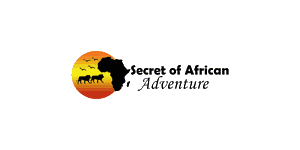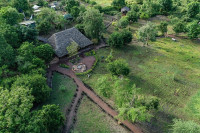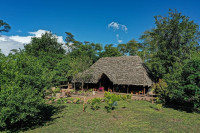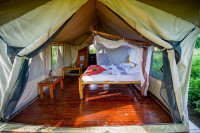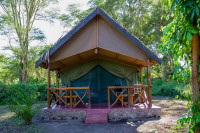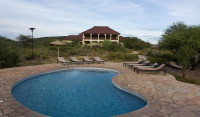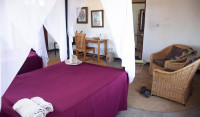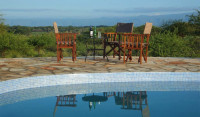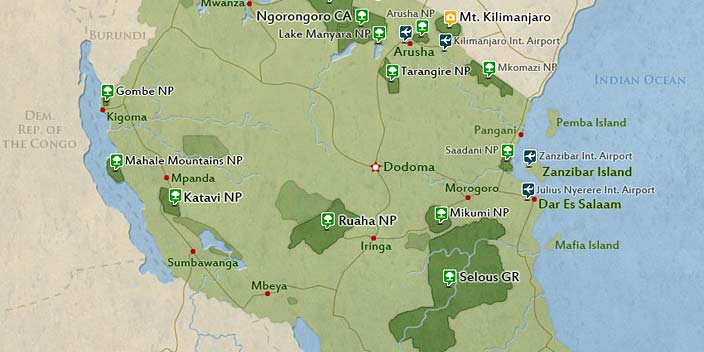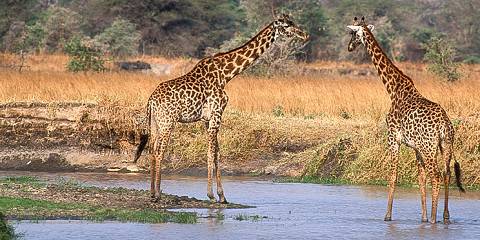
$2,188 pp (USD)
2 travelers on Start dateArrival
Arrival

Day 1
Tarangire National Park
Tarangire National Park
Arrive at the airport on an early flight, preferably not later than 9:00am. Enjoy a scenic two-hour drive to Tarangire National Park for a day of game viewing and wildlife encounters. Meals and an overnight stay are at Migunga Tented Camp. Tarangire National Park, located in Tanzania’s Manyara Region, takes its name from the Tarangire River that flows through it. This river serves as the primary source of fresh water for wildlife in the Tarangire ecosystem during the dry season. The park is famous for its large elephant herds and the long-distance migration of wildebeest and zebra. During the dry months, thousands of animals gather around the Tarangire River from surrounding wet-season dispersal and calving areas, creating extraordinary wildlife-viewing opportunities.
- Main Destination:
- Tarangire National Park
- Accommodation:
- Migunga Tented Camp
- Meals & Drinks:

Day 2
Ngorongoro Crater
Ngorongoro Crater
After breakfast, with picnic lunches packed, drive to the Ngorongoro Conservation Area and descend into the crater for wildlife viewing. Meals and an overnight stay are at Lake Eyasi Lodge. The Ngorongoro Conservation Area is unique in that it is the only conservation area in Tanzania that protects wildlife while also allowing for human habitation. The pastoralist Maasai people, who live within the area, carefully manage their land use to prevent negative effects on the wildlife population. For example, cultivation is limited to small-scale subsistence farming only.
- Main Destination:
- Ngorongoro Crater
- Accommodation:
- Lake Eyasi Safari Lodge
- Meals & Drinks:

Day 3
Nature Walk & Visit to the Datoga Tribe
Nature Walk & Visit to the Datoga Tribe
After breakfast, arrange a nature tour to visit local tribes, then begin the drive back to the airport to catch your flight to your next destination. The Hadza, also known as Hadzabe (Wahadzabe in Swahili), are a protected hunter-gatherer community in Tanzania, primarily based in Baray, an administrative ward within the Karatu District in the southwest Arusha Region. They live around the Lake Eyasi basin in the central Rift Valley and on the neighboring Serengeti Plateau. As descendants of Tanzania’s aboriginal, pre-Bantu expansion hunter-gatherer population, they have likely occupied their current territory for thousands of years with relatively little change to their traditional way of life until the last century. They have no known close genetic relatives, and their language is considered an isolate.
- Main Destination:
- Lake Eyasi
- Accommodation:
- No accommodation (End of tour)
- Meals & Drinks:

